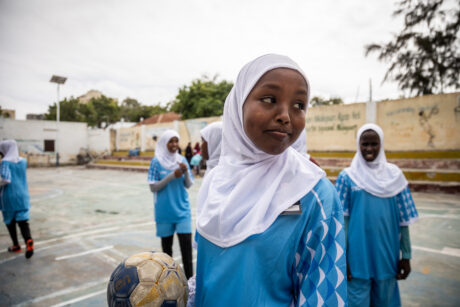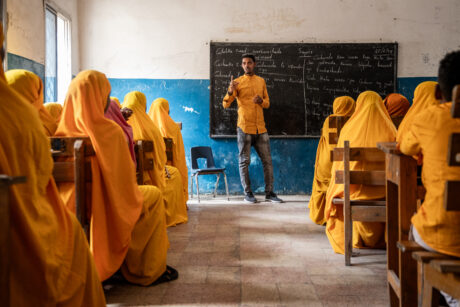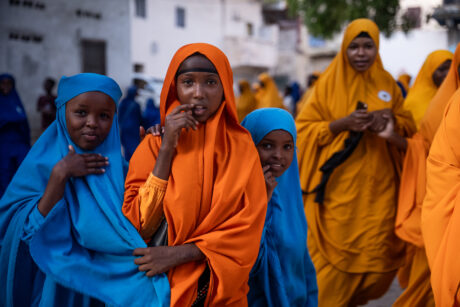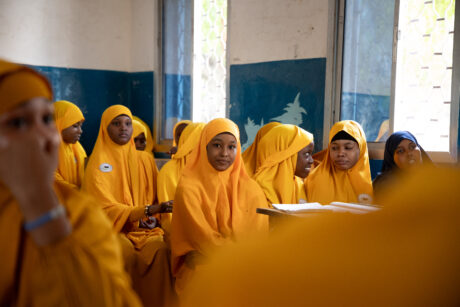Mogadishu, SomaliaNadifa Mohamed, 35, is a midwife in Balcad District. She plays an intimate role in her community, and her work with children does not end at infancy. Nadifa has always been an advocate for girls’ education, a commitment she learned from her mother.
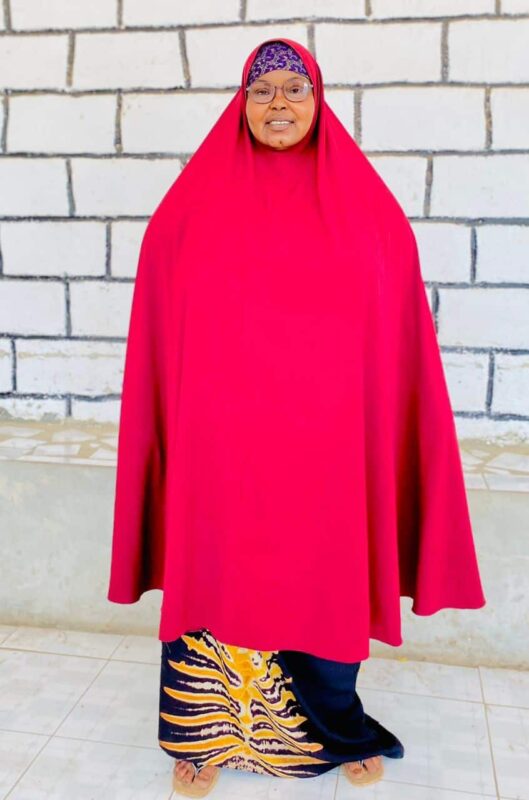
“Girls’ education was not encouraged when I was growing up,” says Nadifa. “My parents were even convinced to take me out of school once due to immense pressure from our community.” Nadifa’s mother, however, insisted that she get back in the classroom.
“My mother stood up for me when everyone, including my father, told me to stop going to school and stay at home to help with the household instead,” Nadifa recalls.
Insecurity, drought and economic barriers contribute to roughly 3 million students being out of school in Somalia. Accessing education is particularly difficult for girls. According to the U.S. Agency for International Development, “only 25 percent of primary school-aged girls are attending formal schools, [and] 65 percent of young women aged 20 to 24 have not attended school at all or only have some primary education.”
Nadifa eventually became the first woman in her family to complete university. Now, as a mother of five daughters, she works to pass her conviction in education to the next generation.
“My daughters were enrolled in school at a young age because I wanted them to understand the value of education early on. I want them to excel at their studies and aspire for whatever profession suits them,” she says.
In addition to working as a midwife, Nadifa also supports relief efforts organized by Red Crescent and Hano Academyand serves as a Community Education Committee (CEC) member with Bar ama Baro.
Bar ama Baro is a USAID-funded accelerated education program implemented in partnership with Somalia’s Ministry of Education, Culture and Higher Education. The program provides an opportunity for out-of-school children and youth ages 9 to 17 to complete eight years of schooling in four years to gain a basic education and a government certificate.
Bar Ama Baro is implemented in 32 districts across Banadir, Hirshabelle, Southwest and Jubaland states. It reaches more than 107,000 students in 3,000 communities and schools.
The Community Education Committees bring together parents, teachers and community members to enroll students, promote education, mobilize the community, and manage school matters like the safety of buildings, the provision of books, and access to water.
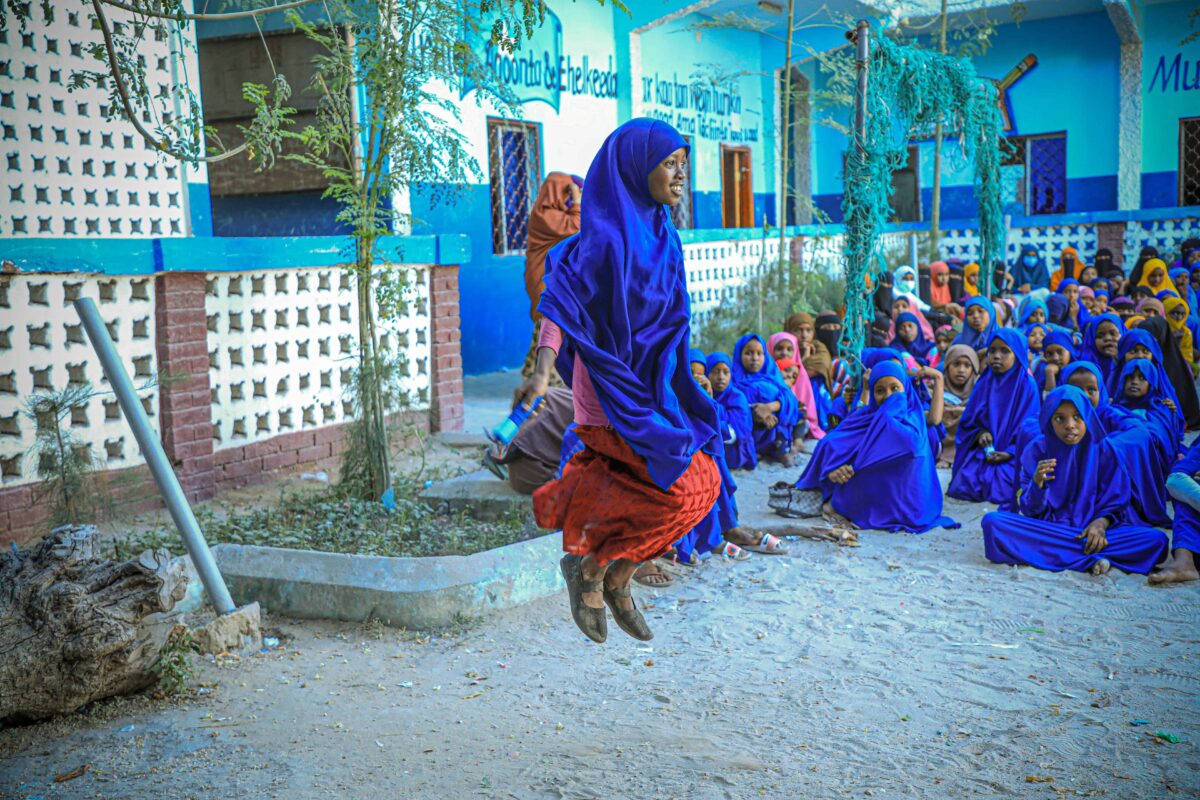
Nadifa has served as a Community Education Committee member for three years and has worked to increase equitable access to quality education. Before the school term begins, she goes door-to-door around the community to encourage parents to send their children to school.
“I tell parents, especially the mothers, not to confine their daughters to domestic chores because girls belong in classrooms,” she explains.
Despite ongoing financial and security constraints, Nadifa has seen a change in community attitudes about girls’ education and parents are providing more equal support to their sons and daughters.
“This inspires and encourages me to continue raising awareness about the importance of girls’ education. Educating a girl is like educating the whole community.”
